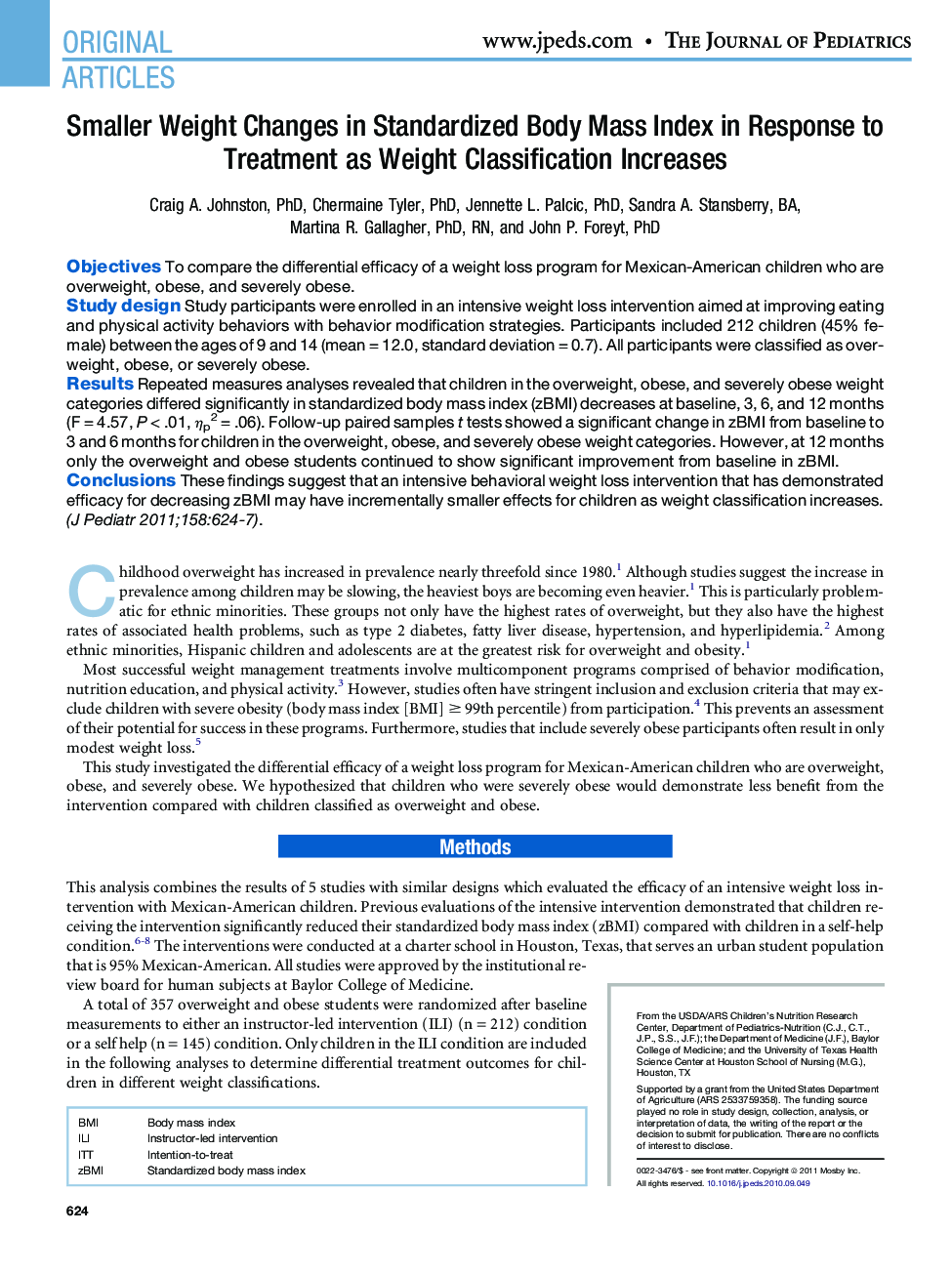| Article ID | Journal | Published Year | Pages | File Type |
|---|---|---|---|---|
| 4167117 | The Journal of Pediatrics | 2011 | 4 Pages |
ObjectivesTo compare the differential efficacy of a weight loss program for Mexican-American children who are overweight, obese, and severely obese.Study designStudy participants were enrolled in an intensive weight loss intervention aimed at improving eating and physical activity behaviors with behavior modification strategies. Participants included 212 children (45% female) between the ages of 9 and 14 (mean = 12.0, standard deviation = 0.7). All participants were classified as overweight, obese, or severely obese.ResultsRepeated measures analyses revealed that children in the overweight, obese, and severely obese weight categories differed significantly in standardized body mass index (zBMI) decreases at baseline, 3, 6, and 12 months (F = 4.57, P < .01, ηp2 = .06). Follow-up paired samples t tests showed a significant change in zBMI from baseline to 3 and 6 months for children in the overweight, obese, and severely obese weight categories. However, at 12 months only the overweight and obese students continued to show significant improvement from baseline in zBMI.ConclusionsThese findings suggest that an intensive behavioral weight loss intervention that has demonstrated efficacy for decreasing zBMI may have incrementally smaller effects for children as weight classification increases.
